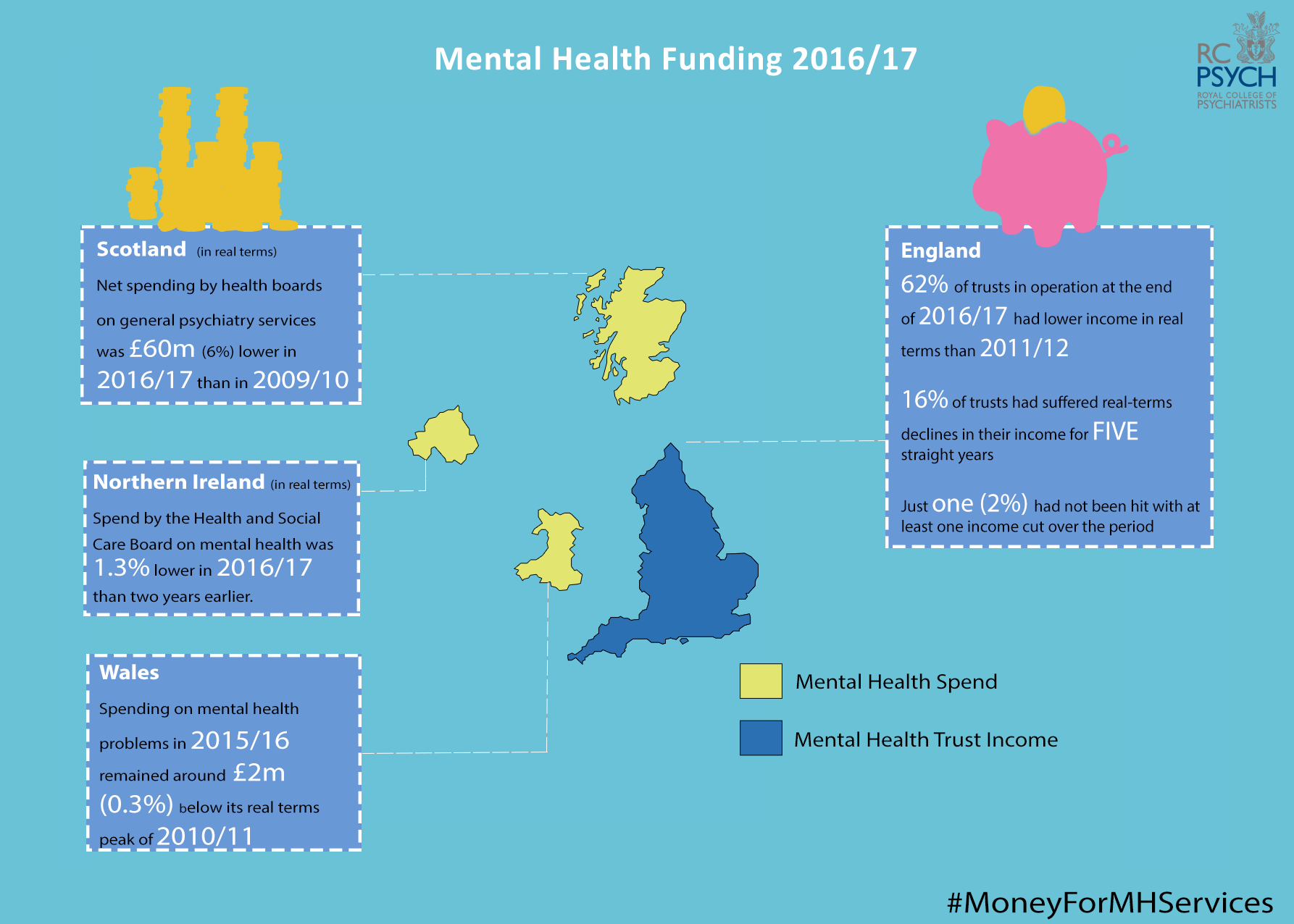Mental Health Trusts Have ‘£105 Million Less To Spend On Patient Care’ Than In 2011
updated on Feb 21, 2018

Nearly two thirds of English mental health trusts have received less funding than they did in 2011-12, claims the Royal College of Psychiatrists.
The college has analysed the latest available accounts (2016-2017) from the trusts and concluded that after inflation adjustments, trusts nationwide have £105 million less to spend on patient care than it did up to seven years ago.
It comes despite Prime Minister Theresa May insisting mental health spending is at ‘record levels’ and Health and Social Care Secretary Jeremy Hunt claiming £575 million has been spent by Clinical Commissioning Groups.
The college says only one mental health trust has seen its income rise across all five financial years, and that nine trusts have seen their income fall in the same period.
Experts at the college claim that the rest of the UK faces similar pressure, with Scottish health boards spending less on mental health in 2016-2017 compared to 2009-2010 in 'real terms'.
Wales and Northern Ireland too have faced reduced investment according to the college, whose inflation adjustment was made using the treasury's GDP online adjustment tool.
Professor Wendy Burn, the college’s president, said: “It is totally unacceptable that when more and more people are coming forward with mental health problems, trusts are receiving less investment than they did, in some cases, seven years ago.
“Patients with mental illness continue to bear the brunt of an underfunded sector experiencing unprecedented demand with limited supply.
“Prioritisation of mental health is about getting the right care, at the right time, in the right place. This can’t happen when trusts continue to receive inadequate investment”.

*Credit: Royal College of Psychiatrists
An NHS England spokesperson, has dismissed the claims, branding the findings ‘sloppy’ and that they contain 'basic flaws and obvious mistakes'.
They said: “Firstly it ignores the fundamental fact that many of the trusts it references provide both mental health and community services entirely unrelated to mental health. So changes in the trusts’ total income tells us nothing about their mental health revenues specifically.
“Secondly, their press release seems to forget that during the period in question, responsibility for funding many of the services these trusts provide, such as sexual health clinics, transferred from the NHS to local government.
“Thirdly, it suppresses the inconvenient truth that NHS mental health investment has been increasing in real terms both last year and this. Indeed even on its own flawed maths, the briefing concedes: 'the total in 2016/17 was higher than any of the previous four years'".

